Publications
Articles, publications, books, tools and multimedia features from the U.S. Institute of Peace provide the latest news, analysis, research findings, practitioner guides and reports, all related to the conflict zones and issues that are at the center of the Institute’s work to prevent and reduce violent conflict.
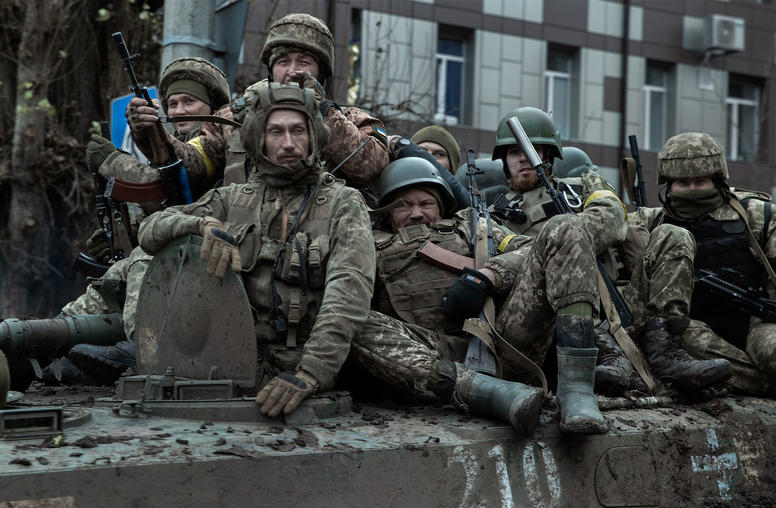
Preparing for Victory in Ukraine
Success. That’s the potential outcome that the United States, Ukraine, allied and partner governments, and private-sector actors must now prepare to confront. Ukraine’s counteroffensives, backed by expanded and accelerated U.S. and allied support, continue to push Russian forces out of Ukrainian territory, although at a reduced rate. These hard-won successes, however, bring with them possible challenges that also must be addressed.
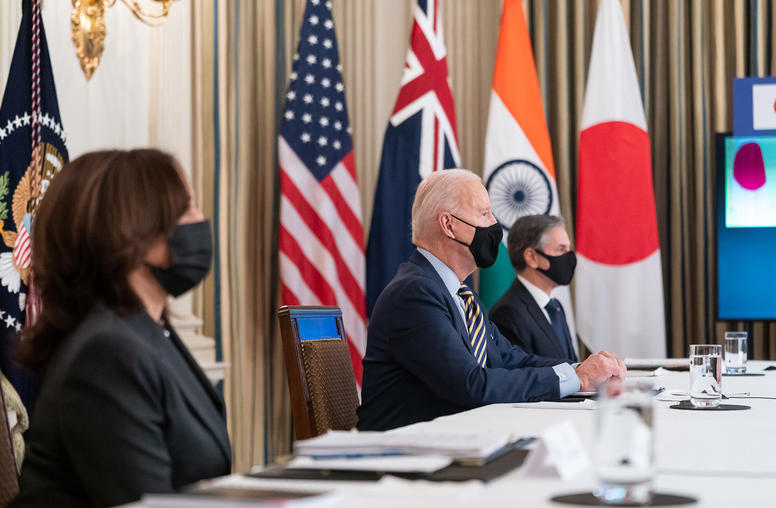
Addressing the ‘Global Challenge’ Posed by China
The United States must ensure that its focus on the Indo-Pacific region does not come at the cost of its interests in other parts of the world where China also poses a challenge, according to U.S. National Security Council Coordinator for the Indo-Pacific Kurt Campbell.

How 9/11 Changed Peacebuilding
The attack by al-Qaida terrorists on the United States on September 11, 2001, transformed the field of peacebuilding and the way its practitioners view violent extremism.
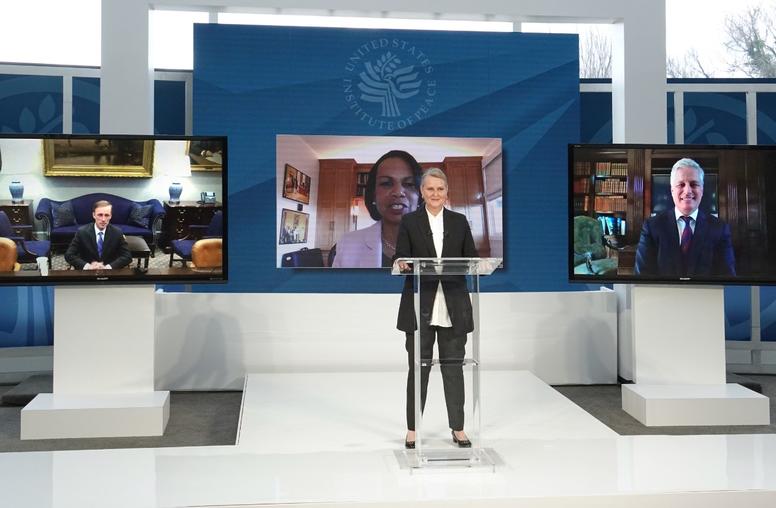
At a Time of Tests, Security Advisors Discuss Threats to U.S. and Global Security
The national security advisors to Presidents Biden and Trump discussed the main security threats and challenges to the United States, including China, Russia and Iran. In the shadow of a turbulent transition, National Security Advisor Jake Sullivan and his predecessor, Ambassador Robert O’Brien, spoke together in a rare policy dialogue between officials of the Biden and Trump administrations.

German Reunification: ‘It Was Nothing Short of a Miracle’
A little over 30 years ago, the fall of the Berlin Wall and the subsequent reunification of Germany were far from certain. It took visionary and courageous leaders—and a healthy dose of trust between them—to navigate what was a tumultuous period in history.
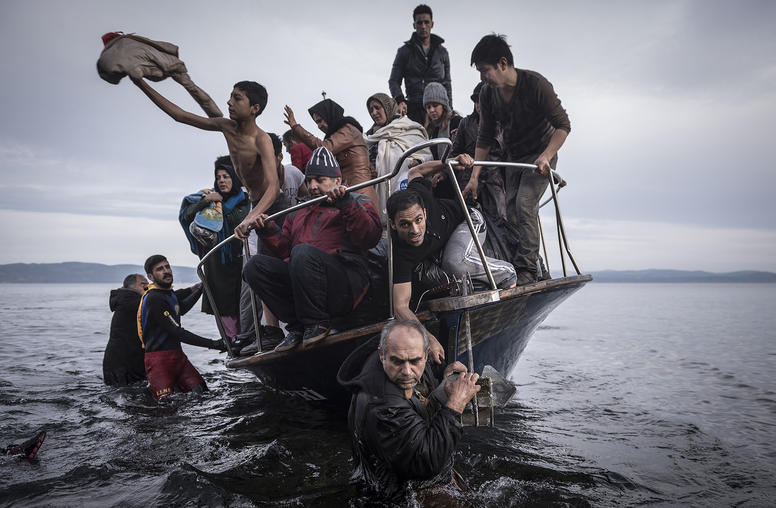
A Rapidly Changing World Requires Renewed International Cooperation
Emerging from the economic havoc of the Great Depression and the violence of World War II, the United States found itself at a hinge of history moment. American leaders like President Harry Truman and Secretary of State Dean Acheson believed that the United States should not only change the way it engaged with the world but assert itself to shape and lead it into a new era of international cooperation. Today, amid a global pandemic, the world faces a similar moment, with massive technological, demographic, environmental, and geopolitical shifts redefining the global order, said former Secretary of State George Shultz. “They [American leaders after World War II] said what we could say now … we are part of this world, whether we like it or not. And they set out to try to make something different.”
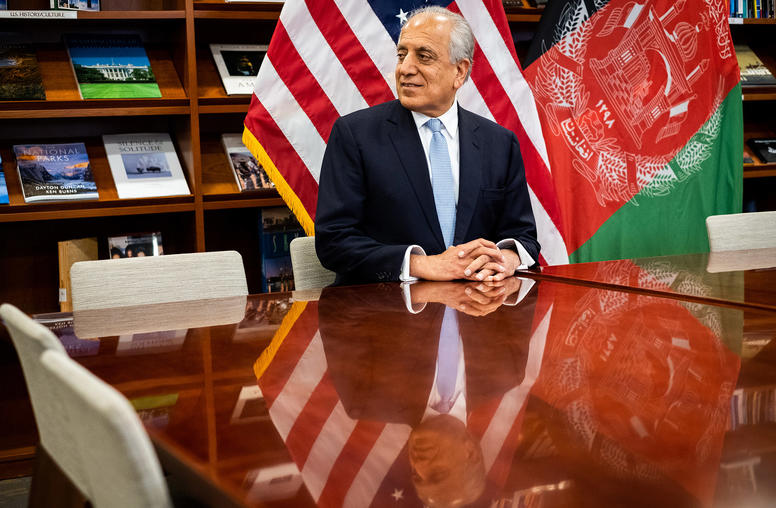
Afghan Talks Are Historic Chance for Peace, Says Top U.S. Negotiator
Afghan peace talks that began in Doha on September 12 are a “historic opportunity” that could bring a close to four decades of conflict in the country and end America’s longest war, said the U.S. special representative for Afghanistan reconciliation on Thursday. The ongoing talks are the “heart of the Afghan peace process,” said Ambassador Zalmay Khalilzad. “It's important to be fully aware of the significance of this moment, and to recognize its historic relevance.” With a note of a cautious optimism, he said there is hope but still a long road ahead, with many thorny issues to be negotiated.
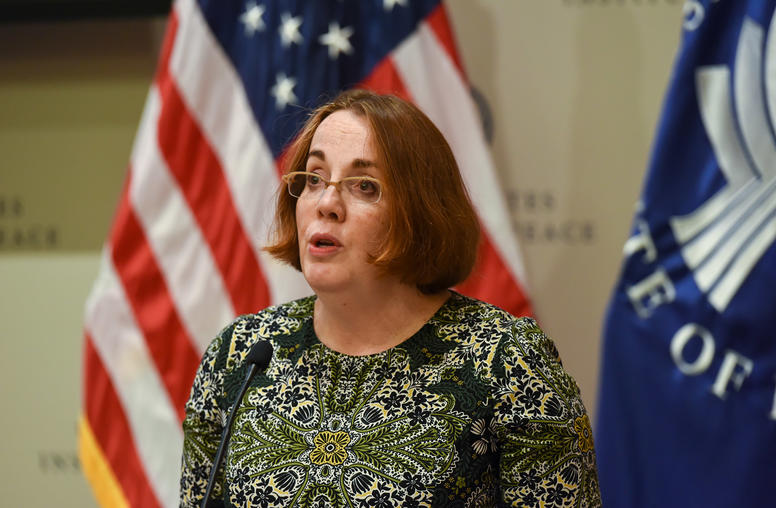
U.S.-Taliban Deal is a “Massive Opportunity,” Says U.S. Negotiator
After a year and a half of negotiations, the U.S. and Taliban have reached an interim agreement to reduce violence for a period of seven days. If that agreement holds, the two sides will formalize a pact that would lead to intra-Afghan negotiations and a phased U.S. troop withdrawal. Although the reduction in violence is an important achievement, it is but one step on a long, rocky road to peace, noted current and former senior U.S. officials on February 18 at the U.S. Institute of Peace.
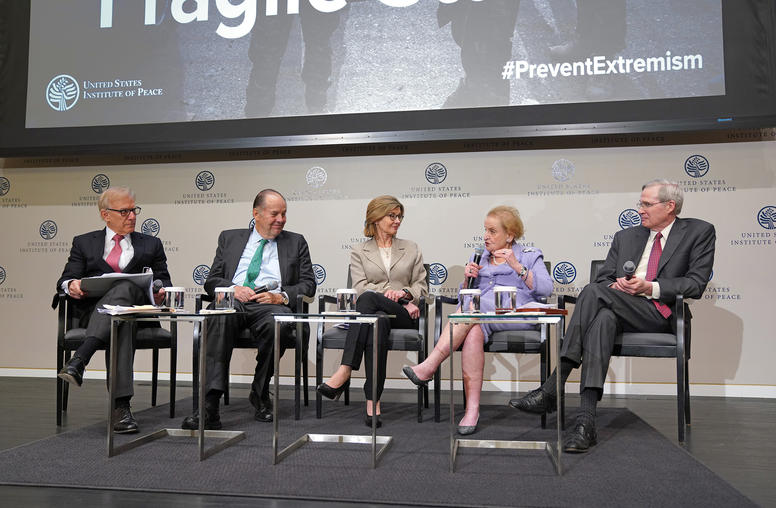
Fragile States and Violent Extremism: New Ideas for a Policy of Prevention
On April 21, suicide bombers in Sri Lanka reminded the world that the end of the Islamic State’s “caliphate” by no means marked the defeat of violent extremism. Indeed, despite trillions of dollars spent and tens of thousands of lives lost, terrorism is spreading. The urgency of checking the ideology behind terrorism, particularly where the ground for it is most fertile, has never been greater, said members of the Task Force on Extremism in Fragile States this week at the U.S. Institute of Peace.
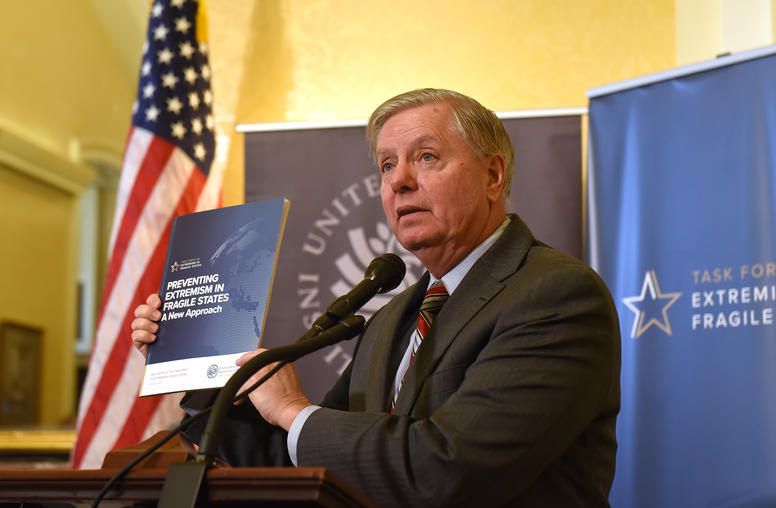
Bipartisan Congressional Panel Urges New Approach to Fighting Extremism
Members of Congress representing both parties—Senators Chris Coons (D-DE) and Lindsay Graham (R-SC), as well as Representatives Eliot Engel (D-NY) and Michael McCaul (R-TX)—yesterday lauded the release of a new report that makes the case and outlines a framework for preventing violent extremism at its roots.